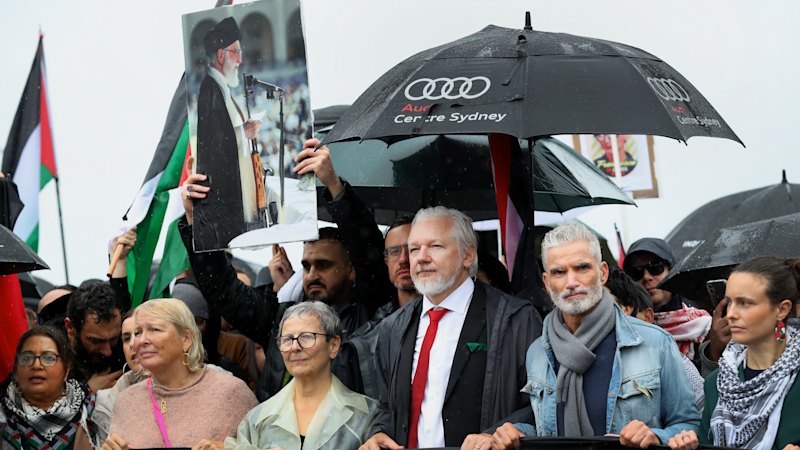
News
September 07, 2025
Marching for Australia, or for Palestine? Don’t let manipulators weaponise your decency
As we’ve seen in recent weeks, public protests, and those who take part in them, can often be manipulated for propaganda purposes. So vigilance is key.
**Marching for Australia, or for Palestine? Don’t let manipulators weaponise your decency**
Recent weeks have highlighted a concerning trend: the potential for public protests, and the genuine concerns that fuel them, to be exploited for propaganda. Whether you're marching for Australian interests or expressing solidarity with Palestine, it's crucial to remain vigilant and understand how your participation might be co-opted by those with ulterior motives.
The power of collective action is undeniable. Protests serve as a vital outlet for voicing dissent, advocating for change, and demonstrating solidarity with important causes. However, this very power makes them attractive targets for manipulation. Individuals or groups with specific agendas can subtly influence the narrative surrounding a protest, pushing their own message while appearing to champion the cause at hand.
How does this manipulation occur? It can take many forms. Organizers might strategically invite speakers with controversial views, knowing their presence will generate media attention and shift the focus away from the core issues. Agitators might infiltrate peaceful demonstrations, provoking confrontations with law enforcement to create dramatic footage that serves a specific political purpose. Misinformation, spread through social media and online platforms, can further distort the reality of the protest and sway public opinion.
The rise of social media has amplified these risks. A single photograph or video, taken out of context, can be rapidly disseminated and used to paint an inaccurate picture of the entire event. Algorithms can prioritize content that is emotionally charged, regardless of its accuracy, further fueling division and polarization.
Therefore, critical thinking is paramount. Before joining a protest, research the organizers and their affiliations. Be wary of individuals who seem intent on hijacking the message or promoting violence. Examine the information you encounter online with a skeptical eye, verifying sources and considering alternative perspectives.
Protecting the integrity of public discourse requires constant vigilance. By being aware of the potential for manipulation, and by actively resisting attempts to distort the truth, we can ensure that protests remain a genuine expression of the people's will, rather than a tool for propaganda. Don't let your genuine concern for a cause become a weapon in someone else's agenda.
Recent weeks have highlighted a concerning trend: the potential for public protests, and the genuine concerns that fuel them, to be exploited for propaganda. Whether you're marching for Australian interests or expressing solidarity with Palestine, it's crucial to remain vigilant and understand how your participation might be co-opted by those with ulterior motives.
The power of collective action is undeniable. Protests serve as a vital outlet for voicing dissent, advocating for change, and demonstrating solidarity with important causes. However, this very power makes them attractive targets for manipulation. Individuals or groups with specific agendas can subtly influence the narrative surrounding a protest, pushing their own message while appearing to champion the cause at hand.
How does this manipulation occur? It can take many forms. Organizers might strategically invite speakers with controversial views, knowing their presence will generate media attention and shift the focus away from the core issues. Agitators might infiltrate peaceful demonstrations, provoking confrontations with law enforcement to create dramatic footage that serves a specific political purpose. Misinformation, spread through social media and online platforms, can further distort the reality of the protest and sway public opinion.
The rise of social media has amplified these risks. A single photograph or video, taken out of context, can be rapidly disseminated and used to paint an inaccurate picture of the entire event. Algorithms can prioritize content that is emotionally charged, regardless of its accuracy, further fueling division and polarization.
Therefore, critical thinking is paramount. Before joining a protest, research the organizers and their affiliations. Be wary of individuals who seem intent on hijacking the message or promoting violence. Examine the information you encounter online with a skeptical eye, verifying sources and considering alternative perspectives.
Protecting the integrity of public discourse requires constant vigilance. By being aware of the potential for manipulation, and by actively resisting attempts to distort the truth, we can ensure that protests remain a genuine expression of the people's will, rather than a tool for propaganda. Don't let your genuine concern for a cause become a weapon in someone else's agenda.
Category:
Politics